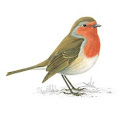I've been doing some work for my brother, who has a super cool graphic design company. They do everything from branding to product displays to websites to photo shoots. He asked me to write copy for a catalogue of high-end sport sunglasses (think Oakleys, but they're not Oakleys).
My job was to write a spiffy history/mission statement, descriptions of all the different styles of glasses, descriptions of the super duper fancy schmancy "tech features" that make these glasses the thing you absolutely have to get if you're at all serious about your sunglasses, and mini-bios of the four famous people who are wearing the sunglasses in the photo shoots (this last one I ended up editing, not writing from scratch).
What took me by surprise was how much I enjoyed doing this work, mostly because of how creative and--dare I say it?--poetic it was.
I was drawn to the challenge of saying normally boring or cliché phrases in a way that was fresh and invigorating. I loved thinking about how to describe a sunglasses feature with style and panache. Ultimately, I found myself using creative language that approximated the poetic process much more closely than I expected.
Of course, I didn't have any illusions that this was poetry, and knowing that my name wasn't going to be on it was pretty nice--kind of lifts the pressure of greatness. (It is only product copy, after all.)
The question of poetry in advertising made me think of the character in Sinclair Lewis' book Babbitt called Chum Frink (his full name is T. Cholmondeley Frink, and that alone is worth the price of the book). Chum Frink is George Babbitt's next door neighbor, and his is "a Famous Poet and a distinguished advertising-agent." He is the author of both "Poemulations" and "Ads that Add."
At a party, Frink gets going about which of his callings is more difficult:
"I’m doing a series of ads for the Zeeco Car and I want to make each of ’em a real little gem—reg’lar stylistic stuff. I’m all for this theory that perfection is the stunt, or nothing at all, and these are as tough things as I ever tackled. You might think it’d be harder to do my poems—all these Heart Topics: home and fireside and happiness—but they’re cinches. You can’t go wrong on ’em; you know what sentiments any decent go-ahead fellow must have if he plays the game, and you stick right to ’em. But the poetry of industrialism, now there’s a literary line where you got to open up new territory."
The poems--not advertising--are the "cinches" if you just "play the game." On the other hand, advertising has true style and panache. So in Frink's world, the poems are the manipulative clichés and the language of advertising is where true artistry happens.
(Of course all of this is Lewis' commentary on the way poetry in the 1920s was changing to include language of popular culture and advertising, as well as the rise of mass culture in general.)
But that leads me to the part about writing catalogue copy that I didn't like as much: the creative language and metaphorical imagery was being used to--basically--manipulate someone into thinking that they should buy these sunglasses (or a store into thinking they should sell them). Where Chum Frink sees poetry as manipulative (and perhaps it is, in its own way), the language of advertising is overtly designed to cause consumer behavior (and even more, create a consumer identity).
In other words, even though the exercise of language for this job was sometimes just as fun as writing poetry, I am more comfortable with poetic language being used to provoke thought rather than the urge to buy. A more cynical view might insist, like Frink, that poetry is "selling" something, even if that something is a sentiment or a thought or a political/aesthetic perspective. But I'd like to think that there's still a difference there, even if it's a question of degrees (and I don't mean that PhD that's hanging over my head).
I should add that my brother's company is run with integrity, skill, and artistry. And (psst, bro) I would totally work for them again. But the whole process made me think about what creative writing means, what advertising does, and the aesthetic philosophies of T. Cholmondeley Frink.
28 September 2007
Chum Frink
Subscribe to:
Post Comments (Atom)

1 comment:
A trivial point, but Chum Frink is not Babbitt's next-door neighbor. His neighbors to either side are Howard Littlefield, a highly educated pedant who works for the Zenith traction company, and the Doppelbraus, who drink too much and have late-night parties of which Babbitt disapproves. I do wonder if Frink was not sendup of Edgar Guest, a dreadful poet popular in the United States a century ago.
Post a Comment